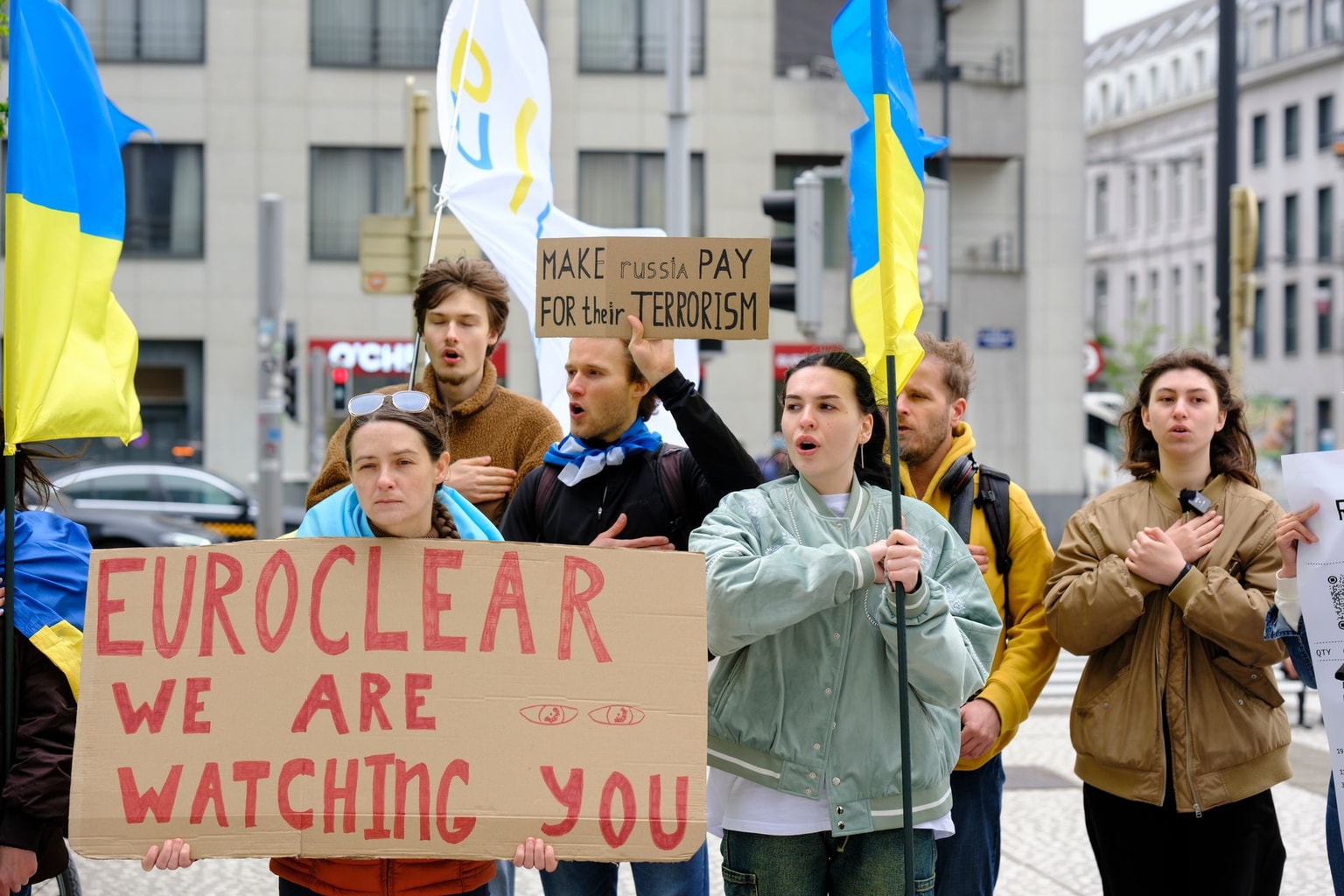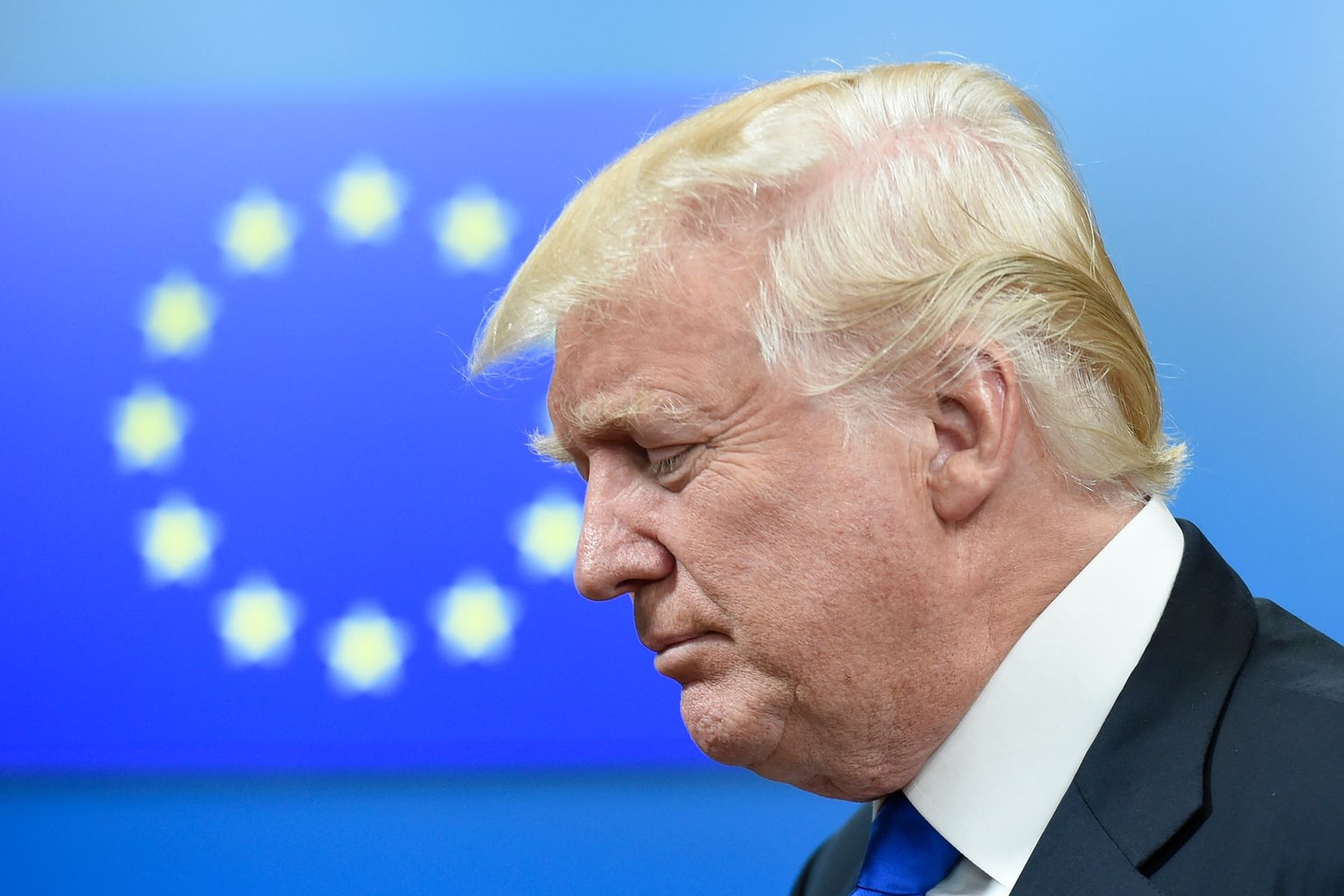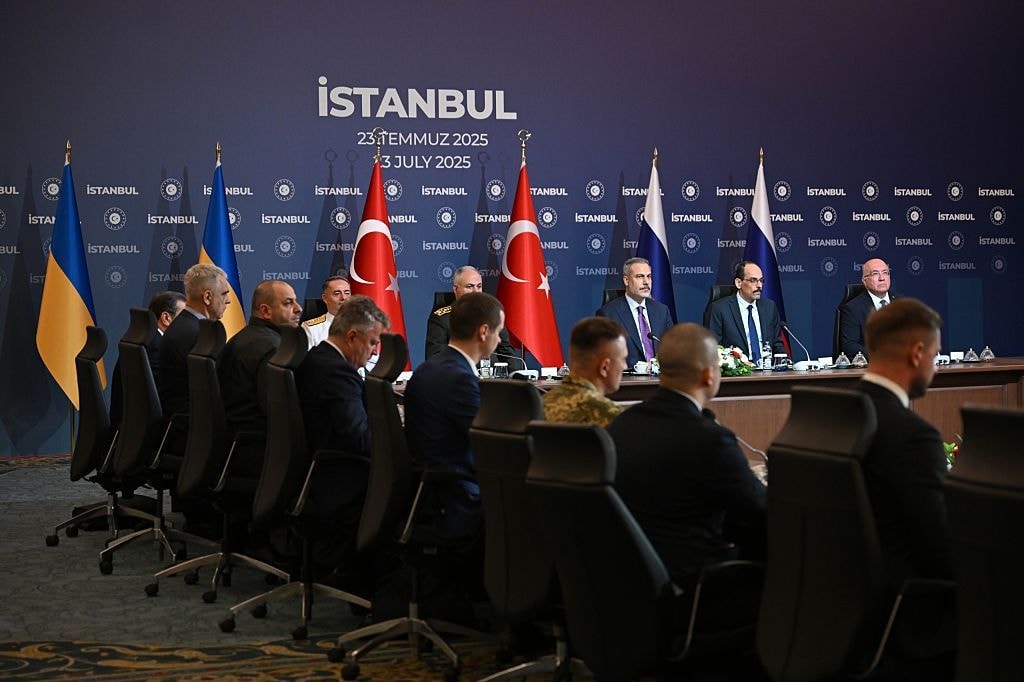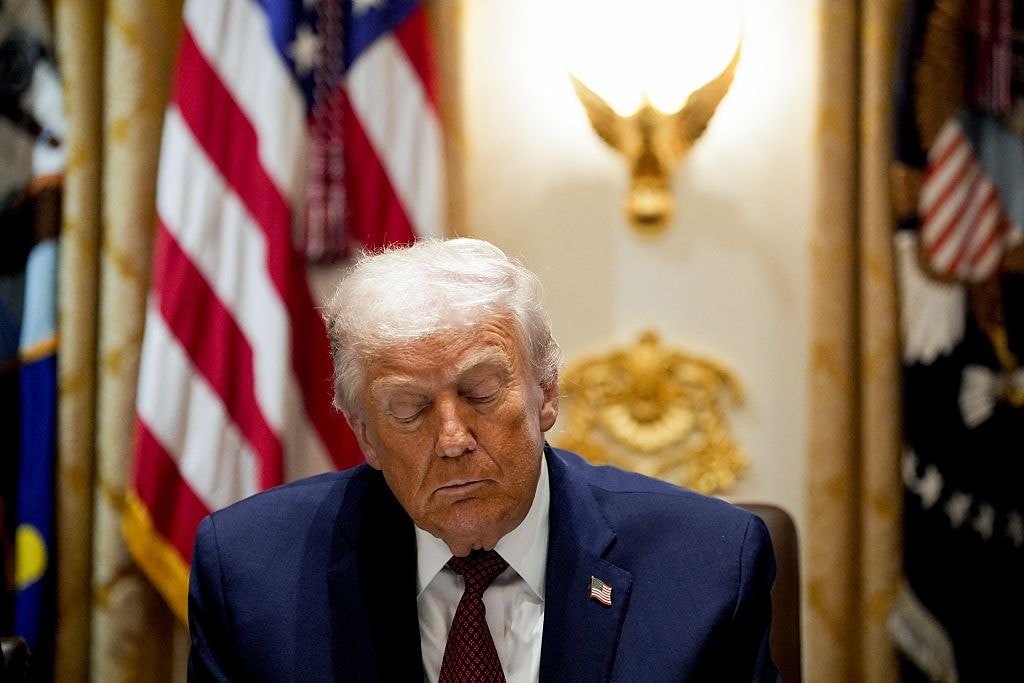Ukraine Business Roundup — Ukraine at Davos 2025

The following is the Jan. 21, 2025 edition of our Ukraine Business Roundup weekly newsletter. To get the biggest news in business and tech from Ukraine directly in your inbox, subscribe here.
The World Economic Forum’s annual meeting in Davos, Switzerland is this week, and for the sixth year in a row, Ukraine has its “house,” or pavilion where its representatives will be making a case for why the world’s richest should take an interest in the country.
Around 3,000 delegates, including around 60 heads of state and 900 CEOs or heads of companies are in Davos this week to discuss geopolitical turmoil, cybersecurity, and technological advances, all under the theme of “Collaboration for the Intelligent Age.”
Ukraine’s delegation this year is hoping to catch the attention of all these global leaders by advertising Ukraine’s natural resources, which the organizers say are “worth $26 trillion, equivalent to the mineral wealth of Canada or Australia, containing one-third of Europe’s proven lithium reserves and second only to Norway in gas reserves in Europe.”
“Ukraine is a prize, not a burden, and home to trillions of dollars of investment in the coming years,” the Ukraine House’s website reads.
The first event of the forum organized by the house focused on the investment opportunities the country has to offer the world. The event, titled “Aligning Interests: The U.S., Ukraine and a Path to a Just and Sustainable Peace,” focused on the country’s wealth of metals, weapons, food, and technologies.
It’s hardly a coincidence that the organizers of the Ukraine House in Davos chose this as the focus for 2025. Donald Trump, a businessman who loves making deals, has just been sworn in as the U.S. 47th president.
President Zelensky’s administration has reportedly been looking to make a deal with the Trump administration to process and extract rare earth minerals in Ukraine.
And Bloomberg reported that “the buzziest place to be watching (Trump’s) swearing-in was none other than Ukraine House.”
“The vodka was flowing from champagne coupes decked out with American flags. Emblazoned on the front of the building — “Your Country First” — a twist on the MAGA refrain. Inside, the ceremony was broadcast on an over-sized screen against a backdrop of blue and yellow,” Bloomberg wrote.
Zelensky spoke at the forum in the afternoon on Jan. 21, using the moment when all eyes are on the U.S. and Trump’s return to power to remind Europe that it needs to take charge of its own security.
"Europe must establish itself as a strong global player," Zelensky said, adding that while the United States remains an indispensable ally, Washington doubts Europe's ability to contribute meaningfully to global security.
Stay tuned for more updates on Davos 2025 throughout the week on our site.

Sanctions on Russia: What might Trump do?
Now that Donald Trump is officially the president of the United States, the big question in Ukraine is how he and his team will end the war this year as they are hoping to do.
One option available to the new administration to bring Russia to the negotiating table is to use the far-reaching sanctions regime imposed on Moscow since the start of the invasion.
Trump has not yet said publicly what he will do with the sanctions, but experts agree the new president is likely to follow the proposal of Keith Kellog, Trump’s Ukraine envoy, who has suggested sanctions relief as part of potential peace agreements.
His team of advisors is reportedly in the process of preparing a sanctions strategy to pressure Moscow toward a peace deal, according to Bloomberg’s sources.
Whatever route the team ultimately chooses, experts say that any change to the sanctions regime without proper coordination with allies like the U.K. and EU could undermine their efforts to contain Russia and wind up strengthening Moscow.
Read business reporter Dominic Culverwell’s full article here.

Cracks in the system
An important yet overlooked story in Ukraine as of late has been a massive Russian cyberattack in late December on a host of critical government databases containing sensitive files, from property ownership to biometric data to tax records.
The hack also brought down access to Diia — an extremely popular app that has digitized government services like passports and paying taxes.
XakNet, a hacking group previously tied to Russian intelligence, took credit for the attack, posting on Telegram data they claim to have hacked from the Ukrainian civil registry. The hackers claimed to have deleted at least some of the registry data.
The Justice Ministry under which the databases are housed, said yesterday that all the state registries were ready to operate but that access was limited. Diia would be available in the coming days, the ministry said.
But the hack highlights how vulnerable the government’s and Ukrainians’ personal data is to cyberattacks. In pushing to digitize its services quickly, the government also may have taken shortcuts that opened the door to digital onslaughts. Attacks of these kinds also erode public trust in the government, experts say.
Read reporter Kollen Post’s full article here.

Kyivstar going public
Veon, the parent company of Ukraine’s largest mobile operator Kyivstar, said last week that it is moving ahead with plans to list the operator on Nasdaq.
The listing would make Kyivstar the first Ukrainian company to be listed on the U.S. stock market.
Ukraine’s telecoms sector is having its moment. Late last year, French billionaire Xavier Niel bought and merged Ukraine’s third-largest mobile operator Lifecell, and fixed operator Datagroup Volia for over $500 million.
In December, Kyivstar and Elon Musk’s Starlink announced a partnership to expand connectivity in the country.
Rebuilding the country post-war will necessarily involve modernizing and expanding Ukraine’s telecom networks. Niel’s deal is said to come with around $1.5 billion in investments to the sector, while Veon has also pledged $1 billion into the country’s telecoms infrastructure by 2027.

Zelensky stalls on signing tax increase on tobacco
Economists and lawmakers are taking to social media to call out President Zelensky for failing to sign a law passed seven weeks ago on increasing excise taxes on tobacco products.
The new law was supposed to bring another Hr 8-10 billion ($189-$237 million) annually. Delaying signing it has already cost the budget Hr 529.5 million ($12.5 million) since Jan. 1, opposition MP Yaroslav Zhelezniak wrote on his Telegram channel.
That’s money that could have gone to the military, senior economist at the Center for Economic Strategy Yuri Gaidai said in comments posted to the center’s social media.
Gaidai also pointed out that Zelensky tends to delay signing laws if he doesn’t trust the text of the adopted law, but in this case, the law appears clean and has widespread support among business associations, economists, and the International Monetary Fund.
“No one found any issues with corruption (in the law), but it continues to lie somewhere in a drawer, and the budget continues to lose tens of millions of hryvnias every day,” Gaidai said.
What else is happening
Ukraine imported more than $1 billion worth of drones in 2024
Drones were among the top 10 imports in Ukraine last year, as the weapon continues to be central to Ukraine’s fight against Russia, the Center for Economic Strategy reported. Ninety-two percent of drones were imported from China.
Over 75% of American Chamber of Commerce member companies operating in Ukraine anticipate continued or increased US support
Amcham companies include some of the world’s largest companies, including McDonald’s, Coca-Cola, and Bayer. A recent survey of member companies found that 96% of member companies are operational in Ukraine, with 77% of them believing President Trump will continue support for Ukraine.
Russia's Jan. 18 attack damages Ukraine's oldest McDonald’s in Kyiv
A Russian missile strike on Kyiv early on Jan. 18 damaged Ukraine's oldest McDonald’s, located near the Lukianivska metro station in the city's Shevchenkivskyi district. The location opened in 1997. The company said in a statement that all its employees had managed to evacuate to a shelter in time.
Trump pauses US foreign development aid for 90 days, orders review
Ukraine tops the list of U.S. development assistance recipients, receiving over $17 billion in economic aid in 2023 as it faces Russian aggression, official data shows. It remains unclear what programs will be affected or what the immediate impact of the order will be for Ukraine.
Biden administration secretly funded Ukraine's drone industry, NYT reports
U.S. intelligence officers reportedly assisted in advancing Ukraine's drone capabilities, helping to design a new generation of drones intended to revolutionize modern warfare. The declassified data reveals that the U.S. allocated funds for drone manufacturing and facilitated partnerships between U.S. tech companies and Ukrainian drone producers.











